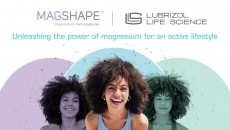Prenatal vitamin D may reduce child’s asthma risk: Harvard study

Data collected over 15 years via the Vitamin D Antenatal Asthma Reduction Trial (VDAART) indicated that prenatal supplementation with 4,400 IU of vitamin D3 was associated with a 20% reduction in asthma for children at age three, compared to a standard prenatal multivitamin with 400 IU of vitamin D.
While these effects were reduced by the time the child reached six years of age, children of women receiving the high-dose vitamin D had improved lung function, reported scientists from Brigham and Women’s Hospital, Harvard Medical School, Boston, and Boston University.
“We would recommend that all pregnant women consider a daily intake of at least 4,400 IU vitamin D3 throughout their pregnancy, starting at the time of conception,” wrote the researchers in the Journal of Allergy and Clinical Immunology.
“It is worth noting that our detailed monitoring of potential adverse events found no attributable adverse events to vitamin D at this dose, during both 3-year and 6-year follow-up intervals, for both mother and child.”
The sunshine vitamin
Vitamin D refers to two biologically inactive precursors - D3, also known as cholecalciferol, and D2, also known as ergocalciferol. Both D3 and D2 precursors are transformed in the liver and kidneys into 25- hydroxyvitamin D (25(OH)D), the non-active 'storage' form, and the active form 1,25-dihydroxyvitamin D (1,25(OH)2D).
While our bodies do manufacture vitamin D on exposure to sunshine, the levels in some northern countries are so weak during the winter months that our body makes no vitamin D at all, meaning that dietary supplements and fortified foods are seen by many as the best way to boost intakes of vitamin D.
To achieve a 25(OH)D blood levels of at least 30 ng/mL, the Endocrine Society Guidelines recommends infants, children and adults receive 400-1,000 IUs, 600-1,000 IUs and 1,000-1,500 IUs of vitamin D daily respectively. Requirements for obese adults are 2-3 times higher.
According to the recently published 2020-2025 Dietary Guidelines for Americans, “vitamin D recommendations are harder to achieve through natural sources from diet alone and would require consuming foods and beverages fortified with vitamin D. In many cases, taking a vitamin D supplement may be appropriate especially when sunlight exposure is limited due to climate or the use of sunscreen.”
Study details
VDAART, which was funded by the US National Heart, Lung, and Blood Institute, was a double-blind, placebo-controlled trial of pregnant women with a personal or family history of allergy or asthma. Four hundred and thirty-five women were randomly assigned to receive a prenatal multivitamin containing 400 IU of vitamin D with or without an additional 4,000 IU of vitamin D. Supplementation started between 10 and 18 weeks of gestation.
Analysis showed that children of the mothers in the high-dose vitamin D group had a 20% lower risk of asthma, lower serum IgE levels (asthmatics have higher IgE levels), and better lung function, compared to kids of mothers in the other group.
“We would […] urge that a definitive trial be organized to systematically test the effects of a higher dose of vitamin D,” wrote the researchers. “Such a trial could investigate its potential to prevent childhood asthma, enhance fetal development, and reduce pregnancy complications, particularly preterm birth and preeclampsia, which in turn could increase risk of childhood asthma.”
Source: Journal of Allergy and Clinical Immunology
Published online ahead of print, doi: 10.1016/j.jaci.2023.10.003
“Prenatal vitamin D supplementation to prevent childhood asthma: 15-year results from the Vitamin D Antenatal Asthma Reduction Trial (VDAART)”
Authors: S.T. Weiss, et al.













